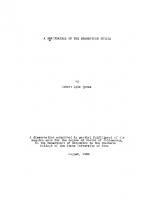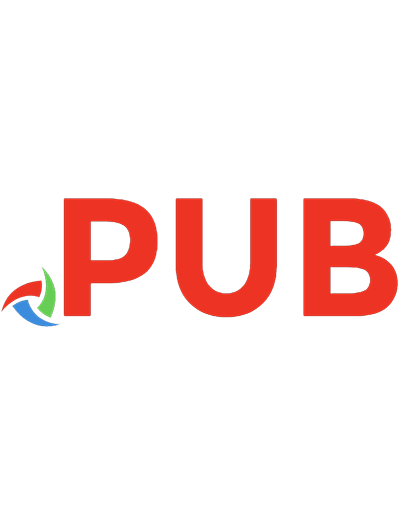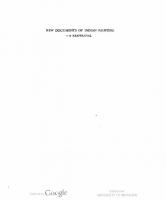Benjamin Waterhouse and the Introduction of Vaccination: A Reappraisal [Reprint 2016 ed.] 9781512800500
This book is a volume in the Penn Press Anniversary Collection. To mark its 125th anniversary in 2015, the University of
132 3 4MB
English Pages 96 [100] Year 2016
Polecaj historie
Table of contents :
Acknowledgments
Plates
I
II
III
IV
V
VI
VII
VIII
Notes
Index
Citation preview
Benjamin Waterhouse and the Introduction of Vaccination
YALE UNIVERSITY DEPARTMENT OF THE HISTORY OF MEDICINE MONOGRAPH SERIES NO. 3 3
Benjamin Waterhouse and the Introduction of Vaccination A Reappraisal
b J O H N B. BLAKE
UNIVERSITY o r
ШЩ & PENNSYLVANIA "•GjPRtss?^
PHILADELPHIA UNIVERSITY OF PENNSYLVANIA PRESS
© 1957 by the Trustees of the University of Pennsylvania Published in Great Britain, India, and Pakistan by the Oxford University Press London, Bombay, and Karachi Library of Congress Catalogue Card Number
57-7460
Printed in the United States of America American Book-Stratford Press, Inc., New York
Acknowledgments
ONE
OF THE HISTORIAN'S MOST PLEASANT DUTIES IS Ac-
knowledging the help he has received from others. Particularly does this apply to the libraries and their staffs who have made his research possible. T h e Massachusetts Historical Society, the Harvard Medical School Library, the Boston Public Library, the Boston Medical Library, the Library of the New York Academy of Medicine, and the Rhode Island Historical Society have all generously allowed me to use manuscripts in their possession. T o the Sterling Memorial Library at Yale I am indebted particularly for the use of the newspaper collection, and especially must I thank Miss Madeline E. Stanton and Mrs. Henrietta T . Perkins of the Yale Medical Library, and Miss Elizabeth H. Thomson of the Department of the History of Mcdicine at Yale, for their unfailing courtesy and attention to many requests. Throughout this project, Dr. John F. Fulton has given me his enthusiastic encouragement and steady support. W h i l e working on this study, I have been aided by a James Hudson Brown Memorial Research Fellowship from the Yale University School of Medicine, and by a fellowship from the Commonwealth Fund.
Plates
Facing page I. Letter from Benjamin Waterhouse to Zacheus Bartlett II. Bartlett's certificate from Waterhouse III. Letter from Charles F. Bartlett to Moses Brown, quoting letter from David King
16 16 20
Benjamin Waterhouse and the Introduction of Vaccination
I I N JULY,
1800,
D R . BENJAMIN WATERHOUSE,
HARVARD'S
first Professor of the Theory and Practice of Physic, introduced the practice of vaccination against smallpox into the United States. Innumerable articles, pamphlets, and books have recorded this fact, and few events in American medical history are more commonly known.1 As early as 1817 T. J. Pettigrew noted in his memoir of John C. Lettsom that the vaccine lymph spread from Waterhouse "through the United States." 2 Waterhouse received full credit in John Baron's life of Edward Jenner,3 and more recent British writers have afforded him similar recognition.4 For many years, however, American authors granted Waterhouse little more than passing notice. Although Josiah Bartlett of Charlestown, Massachusetts, mentioned him generously in 1810,® and James Thacher named him as the nation's first vaccinator," the Boston Medical and Surgical Journal, while recalling his "early and decided" advocacy of vaccination and his designation as the "American Jenner," gave him only a brief obituary.7 Oliver Wendell Holmes in 1869 at least referred to Waterhouse's achievement,8 but he received remarkably scant and slighting treatment in Edward Warren's biographies of his distinguished father and brother.® Samuel D. Gross omitted Waterhouse from his selection of outstanding medical figures,10 and the centennial history of American medicine mentioned him but once.11 Not until 1881 did Henry A. Martin present the first 11
12
B E N J A M I N WATERHOUSE
extended notice of Waterhouse's work. After castigating the hereditary "Boston Clique" for its treatment of his hero, Martin recounted the vaccinator's struggles primarily in his own words, and reproduced several letters from Thomas Jefferson to document the story of their cooperation. 1 2 T h e same year, however, in an address to the Massachusetts Medical Society, Samuel Abbott Green also recognized Waterhouse's contribution and cited his books on vaccination. 13 Three years later Joseph Jones reprinted part of Martin's article and added new material on other early vaccinators. 14 Following their lead, William M . Welch published in 1885 a more complete account of Waterhouse's achievement and firmly entrenched his name in the annals of American medical history. 15 Since then innumerable authors have swelled the volume of praise, so that today Waterhouse is one of our leading medical heroes: a recent list of the twenty-five outstanding pioneers of public health in America, the consensus of a number of experts in the field, accords sixteenth place to the man who introduced vaccination.1® W i t h few exceptions historians have portrayed Waterhouse as struggling against public and professional prejudice and hostility in Boston, in marked contrast to the friendship and support of Jefferson and Jenner. T o account for this opposition writers have mentioned Waterhouse's adherence to the Society of Friends, his political support of the Jeffersonian Republicans, and petty personal jealousy aroused by his superior scientific qualifications, his skill in controversy, his appointment as a young Rhode Islander to the first Professorship of Physic at Harvard, and his recognition as " T h e American Jenner." Almost nowhere has it been intimated that any of his actions in connection with the introduction of vaccination offered
AND THE INTRODUCTION O F VACCINATION
15
the Bostonians any legitimate reasons, other than personal ones, for disliking or distrusting him. 17 Accounts of Waterhouse's work, however, when not derived from purely secondary material, nearly always depend directly and almost exclusively on his own forceful version, on letters published by Baron and Pettigrew, and in a few instances on some of the manuscripts preserved by his family. Some years ago James A. Spalding 18 and Morris C. Leikind 19 published certain correspondence that calls for a reappraisal of the relations between Waterhouse and his professional brethren. This material, and much more in the files of Boston newspapers, has never been adequately analyzed. 20
π E A R L Y Ш 1 7 9 9 B E N J A M I N W A T E R H O U S E RECEIVED A COPY
of Edward Jenner's Inquiry into the Causes and Effects of the Variolas Vaccinae from his London friend and correspondent, Dr. John C. Lettsom, and soon thereafter drew up a brief account of the new discovery, which the Columbian Centinel, a Boston newspaper, published on March 16, 1 7 9 9 . 2 1 Other reports soon followed, and by 1 8 0 0 several American physicians were attempting to import cowpox virus. On July 8, 1800, Waterhouse achieved the first significant result when he vaccinated his son Daniel. 22 On August 2, after treating six more members of his household, he requested Dr. William Aspinwall, who maintained a hospital for this purpose in Brookline, to inoculate one of them with smallpox. The test was an unqualified success.23 As the news spread, practitioners soon deluged Waterhouse with requests for information and vaccine, but he was as yet unwilling to comply. Since, he explained, he had taken much pains in this business, run no small risk of reputation, as well as of personal feelings, there are few he trusts that will wonder he is anxious to have the matter under his own eye until the practice is more firmly established by the public opinion. A few unsuccessful cases at the beginning, deprived Scotland of the blessings of inoculation for the small-pox for more than 20 years.24 Many physicians nevertheless continued to apply. Among them was Lyman Spalding of Portsmouth, New 14
AND THE INTRODUCTION O F VACCINATION
15
Hampshire, who first wrote Waterhouse on August 25 of his plan to operate a smallpox inoculation hospital in conjunction with a Dr. Cutter, and of his interest in vaccination. Soon after, he sent another letter asking for cowpox "matter," and on September 6 Waterhouse replied: I have only time to say that I have received your second letter, and that I will accomodate you with the matter &c at the same lay which has been offered to me but I declined, namely for one quarter of the profits arising from the inoculation & the contract to remain for 14 months from this time. Abandon the idea of inoculating for small-pox & throw all your attention to the Kine-pox.25 If this idea suits you & Dr Cutter you shall be accomodated at once, for half a dozen practitioners stand ready to jump at that offer and two of them are not at very great distance from you. I haste I am yours &c Benjn. Waterhouse 2 6 Four days later, dropping the idea of a partnership with Cutter, Spalding accepted these terms, but added, "on your part it is expected, that the like priviledge will not be granted to others in my vicinity." 27 This did not satisfy Waterhouse. He wanted young Spalding to join forces with an older and better established practitioner, who would bring in more business and therefore increase his share. After several more letters had passed between them, however, Waterhouse acceded to Spalding's insistence on a local monopoly and on September 25 sent him the virus in return for his written bond to pay one quarter of the profits. 28 Meanwhile, Waterhouse allotted the rest of Strafford, Grafton, and Rockingham counties in New Hampshire, except for Hanover and its vicinity, to three brothers, Drs. Levi, Josiah, and Ezra Bartlett, and in exchange for similar bonds provided them with vaccine. Later, it appears, Dr.
16
BENJAMIN WATERBOTJSE
Thomas Banning joined them. Other favored physicians included a Dr. Rowe in Vermont; and in Massachusetts, Stowe Ranney of Brentwood, Benjamin Billings of Mansfield, Ebenezer Perry of New Bedford, James Mann of Wrentham, and Zacheus Bartlett of Plymouth. Similar arrangements were presumably concluded with Dr. David King of Newport, Rhode Island, and a Dr. Dyer of Providence, while at least one small-town practitioner, less likely to attain an extensive practice, received the lymph for a flat fee of one hundred and fifty dollars. Nor were these cases exceptional. T o Zacheus Bartlett, Waterhouse outlined his "custom of supplying practitioners" on October 1: I would just observe to you that I have made a contract with several practitioners in different states & counties, and most of them have agreed to give me one quarter of the neat profits, others have given me a specific sum. In none have I less than a quarter of the profits.29 While thus distributing vaccine to selected country physicians who were unable to compete with him, Waterhouse denied it to those in the capital. In these circumstances his Harvard colleague John Warren on August 20 wrote to his son, a medical student in London: The Cow or Kine pox is making some noise here. I wish you had thought of procuring and sending me some matter, as Dr Waterhouse is the only Physician who has received it from London and has begun to practice, and the other Physicians cannot readily obtain it. I should like to know from you what its present character is and if you can easily obtain it and send it in a closely sealed Phial. I may possibly have it in that way sooner than any other.30 At the same time another Boston physician, Samuel Brown, to whom the Humane Society of Massachusetts
с.-?,..
,
^'(».АЛЛ-к
.- •
..
·.—'.' '
·•', fr.,
А... W 6 ^ m/uierv «у «.г«;!.
4/ / I i . / ftj
....
..-.-V'
А --
Αν fit.
•* >«'
...·. ß r t * * * * —
£
д
„
У
: :
··'''.·' .










![Benjamin Waterhouse and the Introduction of Vaccination: A Reappraisal [Reprint 2016 ed.]
9781512800500](https://dokumen.pub/img/200x200/benjamin-waterhouse-and-the-introduction-of-vaccination-a-reappraisal-reprint-2016nbsped-9781512800500.jpg)